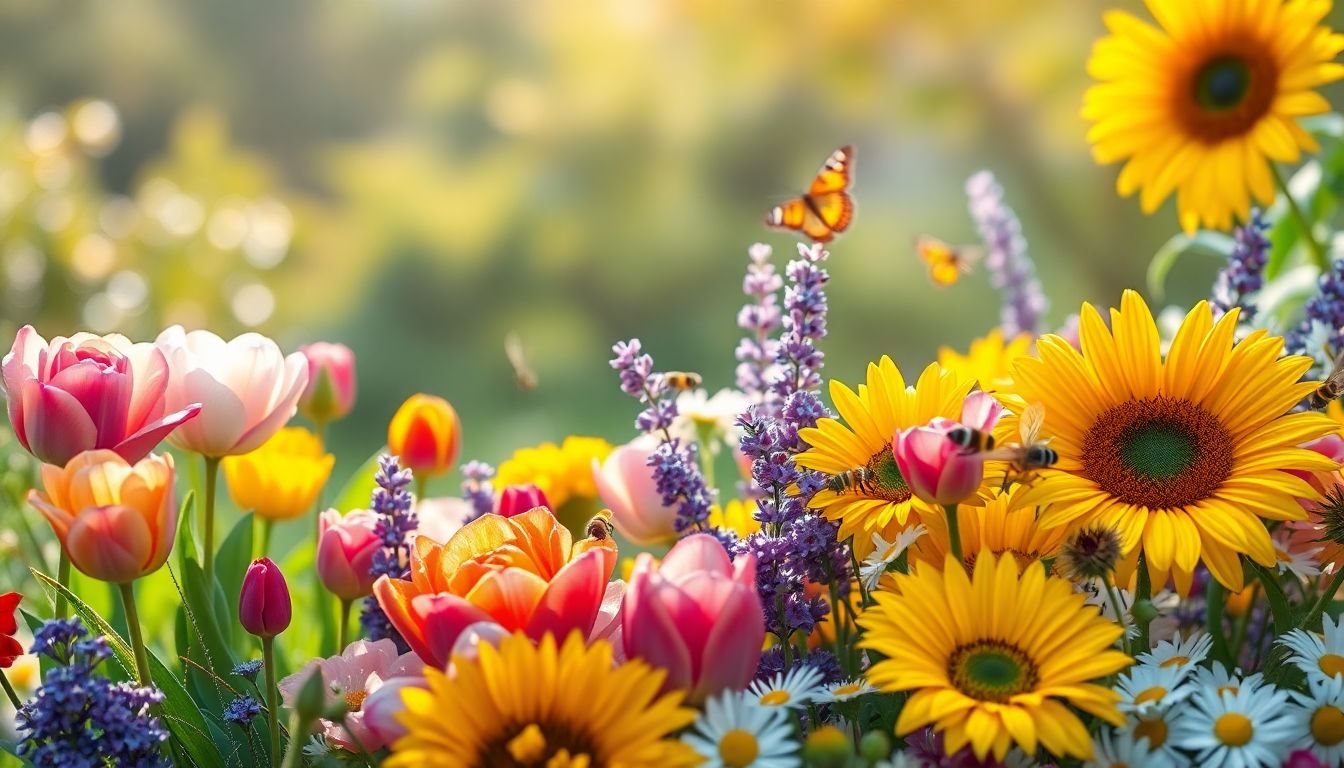
From bright sunflowers to delicate roses, flowers catch our eye instantly. Across cultures and ages, they have been part of our stories and traditions. But flowers aren’t just pretty to look at — they do so much more. They lift our spirits, shape our rituals, help the environment, and even boost economies. Flowers are more than nature’s artwork; they are essential to our lives in ways we often overlook.
The Psychological and Emotional Impact of Flowers
Flowers as Natural Mood Boosters
Have you ever received flowers and felt instantly happier? Science shows that flowers can make us feel calmer and less stressed. Just looking at blooms releases chemicals in your brain that improve mood. Keeping flowers around during tough times can help fight sadness and boost positivity.
Symbolism and Comfort in Difficult Times
Flowers often speak what words can't. They stand for love, hope, and farewell. That’s why we see them at weddings, funerals, and hospital visits. They bring comfort and help us express feelings privately when words fall short.
Actionable Tips for Incorporating Flowers into Daily Routine
For a quick pick-me-up, try placing a fresh flower on your desk or windowsill every morning. Swapping seasonal blooms keeps things exciting and offers extra health benefits. A small bouquet can turn a dull day into a brighter one.
Cultural Significance and Symbolism of Flowers
Flowers in Traditions and Celebrations
Different flowers hold special meanings in cultures. For example, roses symbolize love, while the lotus is linked to purity in many Asian cultures. During festivals or religious events, flowers play a key role in expressing devotion and celebration.
Floral Language (Floriography)
Did you know flowers used to send secret messages? For centuries, people used specific blooms to share feelings without words. A yellow rose meant friendship, and a white lily signified purity. Learning this floral language adds a new layer of meaning to bouquets.
Real-World Examples
In India, marigolds are everywhere during Diwali, symbolizing happiness and prosperity. Japanese cherry blossoms mark renewal and fleeting beauty, reminding us to cherish every moment.
Environmental and Ecological Benefits of Flowers
Pollination and Biodiversity
Flowers attract bees, butterflies, and birds, helping plants reproduce. Without pollinators, many fruits and vegetables can not reproduce. Supporting flowering plants boosts local ecosystems and keeps nature balanced.
Climate and Soil Health
Flowers help stabilise soil and prevent erosion. They also act as natural air filters, improving air quality. Using native flowering plants in gardens encourages sustainability and supports local wildlife.
Challenges and Opportunities
Many habitats face threats from deforestation and farms that only grow one type of crop. But we can help by planting native flowers and creating wild gardens. Small changes make a big difference for nature.
Economic and Commercial Value of Flowers
The Floral Industry and Job Creation
The flower trade is big business, supporting millions worldwide. Growers, shop owners, and delivery workers all rely on flowers for income. Special occasions often boost sales, making flowers an economic pillar.
Flowers in Health and Wellness Markets
Flowers are now in skincare, candles, and natural remedies. Floral extracts are popular in aromatherapy, helping people relax and feel better. Flowers are turning into a tool for mental health and self-care.
Practical Tips for Consumers
Choose flowers from local or sustainable sources to help the environment. Making your own floral arrangements at home saves money and gives a personal touch. Use flowers to decorate your space or give someone a fresh gift.
The Role of Flowers in Promoting Sustainability and Conservation
Supporting Eco-Friendly Practices
Organic farms avoid harsh chemicals, protecting animals and plants. Growing native flowers in your garden keeps ecosystems healthy. This reduces waste and saves resources.
Promoting Urban Greening and Green Spaces
Cities with flower-filled parks are happier places. Urban gardens soften concrete grey, lower temperatures, and bring communities together. Even a small balcony with potted plants makes a difference.
Actionable Steps
Join local planting events or start a flower bed in your backyard. Share tips on sustainable gardening with friends and family. Every flower planted helps support a greener future.
Conclusion
Flowers touch every part of our lives — emotionally, culturally, environmentally, and economically. They bring joy, meaning, and health benefits into our days. To truly value their role, we should plant more native flowers, use blooms mindfully, and protect their natural habitats. Start small — add a flower or two to your life today. Doing so not only lifts your spirits but also helps protect the beauty and balance of our planet.








0 Comments